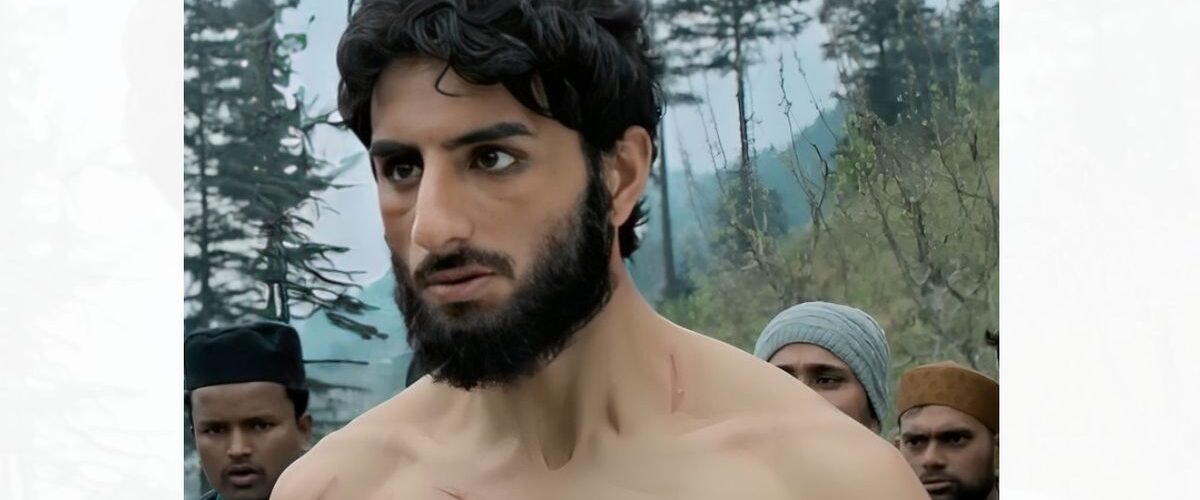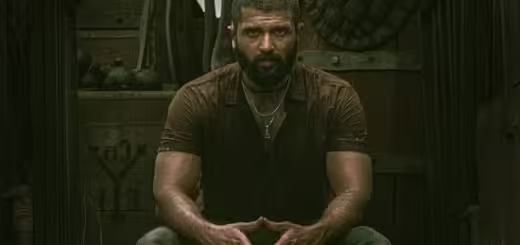Sarzameen Review: A Patriotic Drama with Uneven Execution

Sarzameen, a 2025 Hindi-language film, sets out to explore patriotism, parental dilemmas, and radicalisation against the backdrop of Kashmir. Directed by Kayoze Irani in his feature debut, the film brings together an impressive cast—Prithviraj Sukumaran, Kajol, and Ibrahim Ali Khan. Dharma Productions and Star Studios collaborated on this project, with industry stalwarts like Karan Johar, Hiroo Yash Johar, Apoorva Mehta, and Adar Poonawalla producing the film.
Released directly on JioHotstar on July 25, 2025, Sarzameen attracted attention due to its high-profile cast and the debut of Ibrahim Ali Khan, the son of Saif Ali Khan. Audiences expected a powerful drama combining action, emotion, and national spirit. However, the final product left viewers and critics divided.
Storyline and Themes
The narrative revolves around Colonel Vijay Menon, an unwavering and patriotic Indian Army officer stationed in conflict-ridden Kashmir. Vijay’s personal life suffers a devastating blow when his son Harman disappears, only to resurface years later as Haaris, a radicalised youth who opposes the very army his father serves.
The film explores complex themes like familial love, ideological conflict, emotional abandonment, and redemption. It questions the balance between duty to one’s nation and duty to one’s family. Vijay’s wife, Meher, struggles to hold the fractured family together as her husband chooses national duty over personal connection.
The plot, while ambitious, attempts to follow the emotional journey of a broken family against a politically volatile setting. Unfortunately, the writing often leans on clichés and lacks the nuanced storytelling that a subject of this magnitude demands.
Performances
Prithviraj Sukumaran as Colonel Vijay Menon
Prithviraj delivers a strong and disciplined performance. He commands attention in every scene and brings emotional restraint to the role. His portrayal of a hardened soldier torn between fatherhood and patriotism resonates with gravitas. He never overplays the emotional turmoil, choosing instead to internalise the pain and disappointment his character carries. His commanding screen presence elevates otherwise weakly written moments.
Kajol as Meher Menon
Kajol infuses her character with both warmth and intensity. As a mother who loses her son and a wife who feels abandoned emotionally, she adds depth to Meher’s journey. Her emotional confrontations with both husband and son bring authenticity to the family dynamic. She skillfully portrays the heartbreak and confusion of a woman stuck between her loyalty to a husband and her longing for a son lost to radicalism.
Ibrahim Ali Khan as Harman/Haaris
Ibrahim Ali Khan portrays the son who transforms from a stuttering, timid teenager into a bitter, radicalised young man. While he shows improvement compared to his earlier performance in Nadaaniyan, he still struggles with emotional depth. His delivery feels rehearsed in crucial scenes, and he fails to match the intensity brought by his co-stars. However, a few glimpses reveal potential for growth as he gains experience in front of the camera.
Direction and Screenplay
Kayoze Irani, making his directorial debut, tackles a challenging and politically sensitive subject. While his intent seems sincere, his inexperience shows in how he paces the narrative. The film loses momentum in several segments due to overuse of flashbacks and exposition. Emotional transitions feel abrupt rather than organic. Instead of trusting the actors to carry the emotions through subtlety, the direction often resorts to heavy-handed storytelling.
The screenplay, co-written by Soumil Shukla and Arun Singh, does not fully explore the psychological and emotional complexities of the characters. The dialogue often simplifies major emotional beats and glosses over the moral dilemmas that should drive the narrative. The writers insert dramatic elements without providing the context or depth they require, leading to implausible plot developments—especially the film’s final twist, which borders on the absurd.
Cinematography and Technical Elements
Kamaljeet Negi, the cinematographer, captures the majestic beauty of Kashmir with finesse. His camera lingers on snowcapped mountains, remote villages, and stark military zones, using visual contrast to reflect the emotional disconnection within the Menon family. The cinematography stands out as one of the film’s strongest technical aspects.
On the other hand, the background score and music, composed by Vishal Mishra and Vishal Khurana, struggle to leave a lasting impression. The soundtrack lacks memorable themes or emotional crescendos that could have strengthened key scenes. At times, the score even overpowers dialogue or adds melodrama where restraint would have worked better.
Emotional Impact and Logic Flaws
While Sarzameen aims to evoke deep emotional responses, it fails to connect on a fundamental level. The emotional beats lack buildup. For example, the father-son reunion carries no catharsis, and the ideological clash feels hollow. Viewers never fully invest in the transformation of Harman into Haaris because the narrative skips crucial steps in his psychological evolution.
Moreover, several moments strain credibility. Military operations unfold with unconvincing ease. The depiction of radicalisation relies on outdated stereotypes. One particularly jarring flaw involves the army’s continued use of fax machines in 2025—an odd anachronism that undermines the film’s authenticity. These illogical elements push the story toward melodrama rather than realism.
Reception and Criticism
Critics responded with disappointment, especially considering the talent involved. Many praised Prithviraj and Kajol for their committed performances but criticised the weak script and direction. They noted that the emotional weight rested unfairly on Ibrahim’s underdeveloped shoulders. Critics argued that the film borrowed heavily from older patriotic dramas without offering a fresh perspective.
Viewers echoed similar sentiments. While some appreciated the patriotic tone and family drama, many found the plot predictable and emotionally flat. Audiences criticised the twist ending, calling it contrived and overly dramatic. Social media reviews highlighted how Sarzameen missed the opportunity to become a modern classic by relying on outdated tropes.
Latest Developments and News
On the day of its release, the film experienced piracy issues. Within hours, several torrent platforms leaked the film, causing concern for the producers and streaming platform. This incident reignited the ongoing debate around digital content security in India.
During press interviews, Prithviraj defended Ibrahim Ali Khan from online trolling. He remarked that even actors like Shah Rukh Khan faced harsh criticism early in their careers and that people should offer new actors space to evolve. He also expressed disappointment that Ibrahim debuted with a less demanding project like Nadaaniyan rather than a more complex film like Sarzameen.
Kajol’s performance earned praise across the industry. Co-star Prithviraj compared her spontaneity and raw energy to Malayalam legend Mohanlal, admitting that her unpredictability in scenes challenged him as an actor. Their off-screen camaraderie contributed to the authenticity of their on-screen marriage.
Meanwhile, social media featured Sara Ali Khan, Ibrahim’s sister, attending the premiere and publicly supporting her brother. Fans admired her gesture, while others pointed out that Ibrahim still needed to establish himself on merit rather than legacy.
Final Verdict
Sarzameen carries noble intentions and benefits from powerful performances by seasoned actors. Prithviraj Sukumaran and Kajol carry the emotional weight with sincerity and skill. Their interactions create some of the film’s most memorable moments. However, the film falters due to inconsistent writing, uneven direction, and an unconvincing central performance.
The film wanted to become a poignant exploration of family, ideology, and national duty. Instead, it delivered a dramatic yet emotionally underwhelming experience that lacks the finesse required for such themes. Audiences looking for a patriotic thriller may find it watchable once, especially for Prithviraj and Kajol. But those seeking a deeply engaging, logically coherent story will likely walk away dissatisfied.
Conclusion
Sarzameen aims high but falls short. It combines the visuals of a polished patriotic thriller with the emotional core of a family drama. However, its lack of subtlety, predictable arc, and underwhelming twist dilute its impact. With stronger writing and more thoughtful direction, the film could have delivered on its powerful themes. Instead, it remains an ambitious yet flawed entry into the genre of patriotic cinema.













